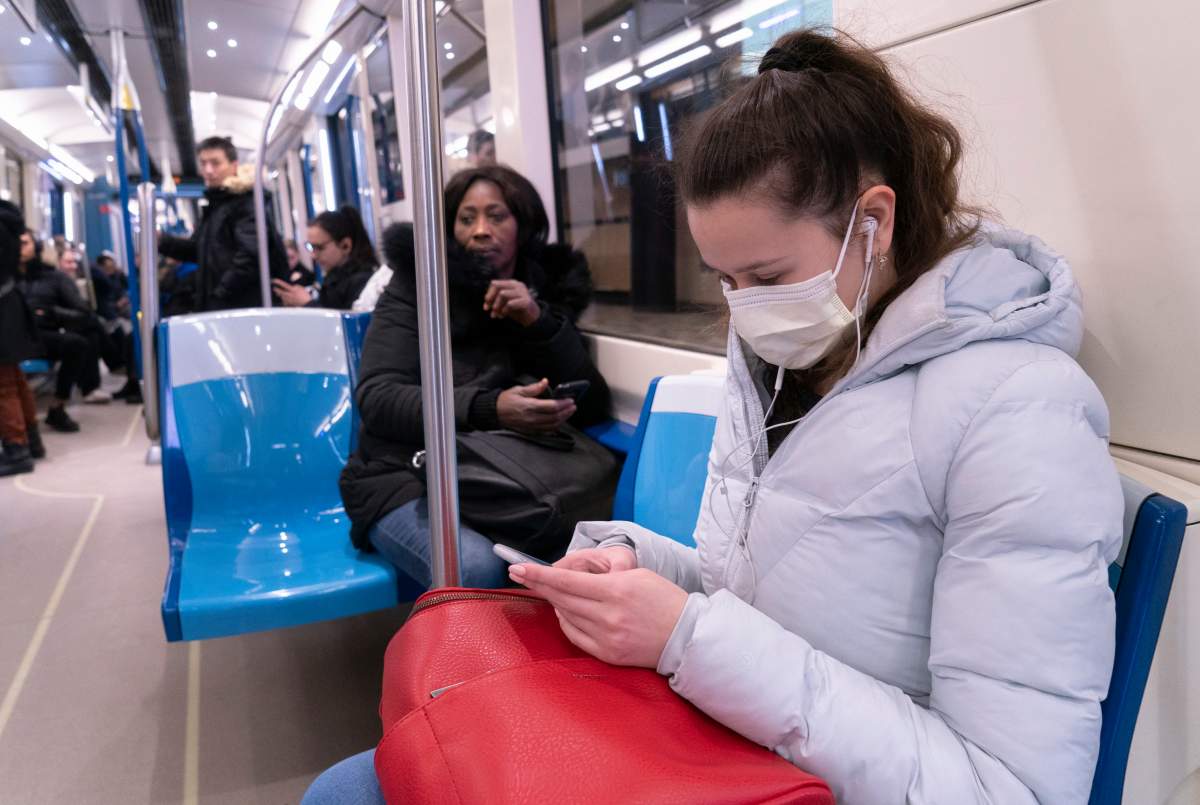With the gradual reopening of schools and certain sectors of the economy, Ensemble Montréal, the official opposition at Montreal City Hall, is calling for the mandatory use of face coverings on public transit.

The party is filing a motion for the city to ask the Société de transport de Montréal to implement the measure.
The opposition argues its a question of making public transit safe for anyone who needs to travel during the city’s de-confinement period.
“Public health has been telling us for weeks that we must keep a distance of two metres from our neighbour to avoid transmission of the coronavirus,” said Lionel Perez, Ensemble Montreal leader, adding it’s a difficult thing especially if thousands of Montrealers start heading back to work.
“This is why wearing a mask or a face cover is a necessity on the metro and on the bus,” he said.
Perez pointed to other countries such as Germany, Italy and Austria where such measures have already been put in place.
Currently, the City of Montreal strongly recommends the use of face-coverings in situations where social distancing is difficult, but has shied away from making face coverings mandatory.

Get weekly health news
For Perez, that’s not good enough.

He feels the wearing of face-coverings during the de-confinement period could help avoid a second wave of infections.
“We have to put all chances on our side and make sure that asymptomatic people cannot spread the virus when they use public transport,” he said.
On Tuesday, Quebec’s Transport Ministry, the workers health and safety board (CNESST) and the public health institute (INSPQ) sought to reassure Quebecers.
“Public transit remains safe and all measures are taken to ensure that activities in this sector continue under the safest and healthiest conditions possible in the context of the recovery,” they said in a joint news release.
Officials, however, reminded riders of the importance of respecting the following instructions:
- keep your distance;
- wear a face cover on buses and subway cars as well as in places where physical distance is not always possible;
- follow the rules of hygiene and respiratory etiquette (for example, cover your mouth and nose with your elbow when sneezing and wash your hands regularly with soap and water for at least 20 seconds);
- do not take public transportation in case of symptoms associated with COVID-19.
The government agencies also said that while a face cover is highly recommended, it doesn’t replace other recommendations, in particular respecting physical distance when possible.
They are also encouraging employers to allow their employees to work from home or to offer flexible schedules to those using public transit to avoid excessive traffic during peak hours.
For its part, the STM said it continues to follow recommendations outlined by public health authorities.
“For now, the use of a face covering is strongly recommended on public transit and other public places where physical distancing may not always be possible, but it’s not mandatory and the STM supports this measure,” said STM spokesperson Philippe Déry.
The transit authority will, however, be supplying its employees with two face coverings each that they can wear while on the job.
“We also recommend that our clients adopt this new accessory, to protect themselves and others,” Déry added.
The motion will be debated during a council meeting on May 25.









Comments